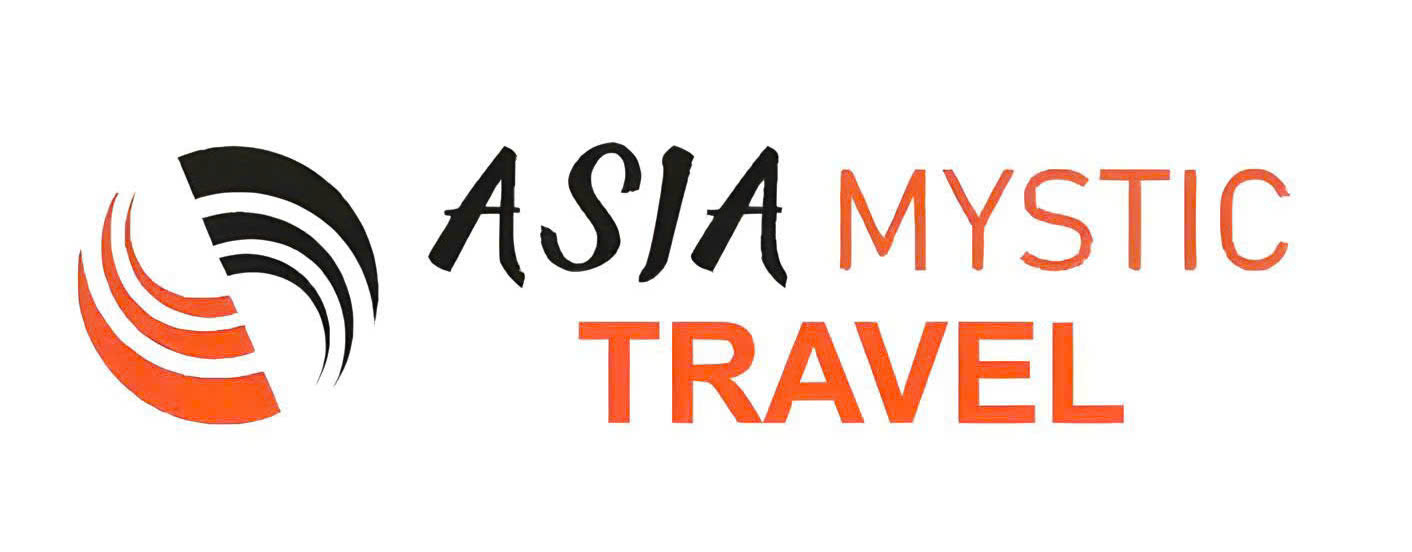
From Ninh Binh To Sapa: Best Ways To Travel & Things To See
How Far Is It from Ninh Binh to Sapa?
The distance from Ninh Binh to Sa Pa is around 380 kilometers (236 miles). Still, due to the mountainous terrain and limited direct connections, the actual travel distance by road or rail is around 430–470 kilometers.
There is no direct train or bus connecting Ninh Binh and Sapa, which makes the journey a bit of a challenge, but with the right planning, it’s all part of the adventure.
Best Ways to Travel from Ninh Binh to Sapa

Getting from Ninh Binh to Sapa might not be the most straightforward route in Vietnam, but it’s certainly manageable and worth the effort. While there’s no direct train line or highway shortcut, you have a few solid options depending on your comfort, time, and budget. Here’s how they compare:
Sleeper Bus
If you’re short on time and want to go directly from Ninh Binh to Sapa without stopping in Hanoi, the sleeper bus is your best bet. You can book a night bus through a local agent in Tam Coc, and while it wasn’t the most luxurious ride, it got the job done efficiently.
Buses usually depart around 8:00 to 9:00 PM from Tam Coc or Ninh Binh city and arrive in Sapa early in the morning, between 6:00–7:00 AM. The beds are narrow but reclining, and the air-conditioning works well. If you’re tall, try to request a lower bunk near the front of the bus. It’s quieter and more spacious.
This option costs about $18–$25, and you can book through your hotel or websites like 12go.asia or vexere.com. Bring earplugs, a neck pillow, and snacks, as stops along the way can be quick and unpredictable.
Note: If you’re a budget traveler or backpacker who doesn’t mind a bumpy ride, this is a fast and cost-effective way to go from Ninh Binh to Sapa overnight.
Train via Hanoi
One of the favorite ways to travel from Ninh Binh to Sapa is by train via Hanoi, especially if you enjoy slow travel and scenic views. Though it takes longer, it’s comfortable and feels like part of the adventure.
The journey involves three legs:
Step 1: Take a train from Ninh Binh to Ha Noi
It’s a smooth ride that takes about 2.5 hours, and trains run several times a day. Tickets cost around $4-$8$, depending on seat type. Recommend choosing the early afternoon departure so you will have time for dinner in Hanoi before the night train.
Step 2: Catch the overnight train from Hanoi to Lao Cai
This is the highlight of the trip. Book a soft sleeper cabin, ideally with four beds, for a decent night’s sleep (around $18-$25). The train departs around 10:00 PM and arrives in Lao Cai at 5:30–6:00 AM. The sunrise lighting up the mountains through the window is something you’ll never forget.
Step 3: Reach Sapa town
From Lao Cai station, hop on a minivan or shared shuttle to reach Sapa town. It takes about 1 hour and costs around $3–$5.
Altogether, this route takes around 12–14 hours and costs $30–$40 in total. I recommend booking your train tickets in advance, especially in peak season (March–May and September–November).
Note: This option is best for travelers who prioritize comfort, want to avoid overnight buses, and appreciate a slower, more scenic journey through Northern Vietnam.
Private Car
If you're traveling with friends or family and want flexibility, booking a private transfer from Ninh Binh to Sapa is a great option.
A private car can pick you up directly from your homestay in Ninh Binh and take you straight to your hotel in Sapa. The journey takes about 8–9 hours, depending on traffic and stops. You can even plan detours to places like Mu Cang Chai or Yen Bai for amazing views of rice terraces along the way.
The cost is around $150–$220 per vehicle, depending on the size and route, but it’s worth it for small groups or travelers who dislike the rigidity of fixed transport schedules. To book a private car, ask your accommodation in Ninh Binh or a trusted local tour company. They usually offer this service with experienced drivers who know the best scenic routes and safe rest stops.
Note: This option is ideal if you want full control over your trip, travel at your own pace, and explore more remote spots between Ninh Binh to Sapa.
Top Things to Do in Sapa You Shouldn’t Miss
Sapa offers a rich mix of natural beauty, cultural encounters, and outdoor adventures. Whether you're here for the trekking, the ethnic markets, or just to breathe fresh mountain air, here are the top experiences you shouldn’t miss:
Trekking Through the Terraced Rice Fields
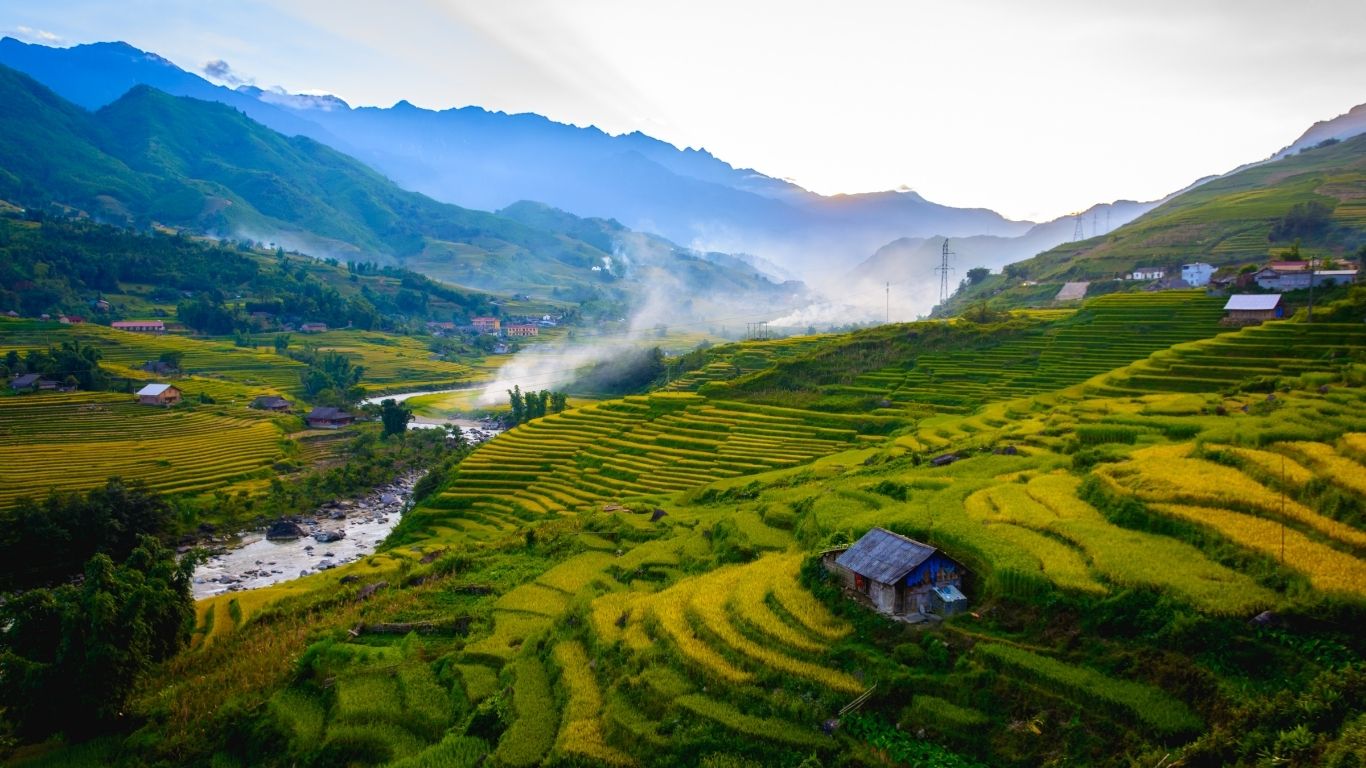
Trekking in Sapa is a must-do and easily the highlight of any trip. The terraced rice fields around villages like Lao Chai, Ta Van, and Giang Ta Chai are simply breathtaking.
You’ll walk through small paths that wind between rice terraces, waterfalls, and wooden homes. Along the way, you’ll meet friendly Hmong and Dao local people, who often work as guides.
Tip: Join a 2-day trek with a local Hmong woman and stay overnight in her homestay, eat home-cooked food, and talk about life in the mountains. It will be one of the most authentic experiences you have in Vietnam.
Conquering Fansipan Peak - The Roof of Indochina
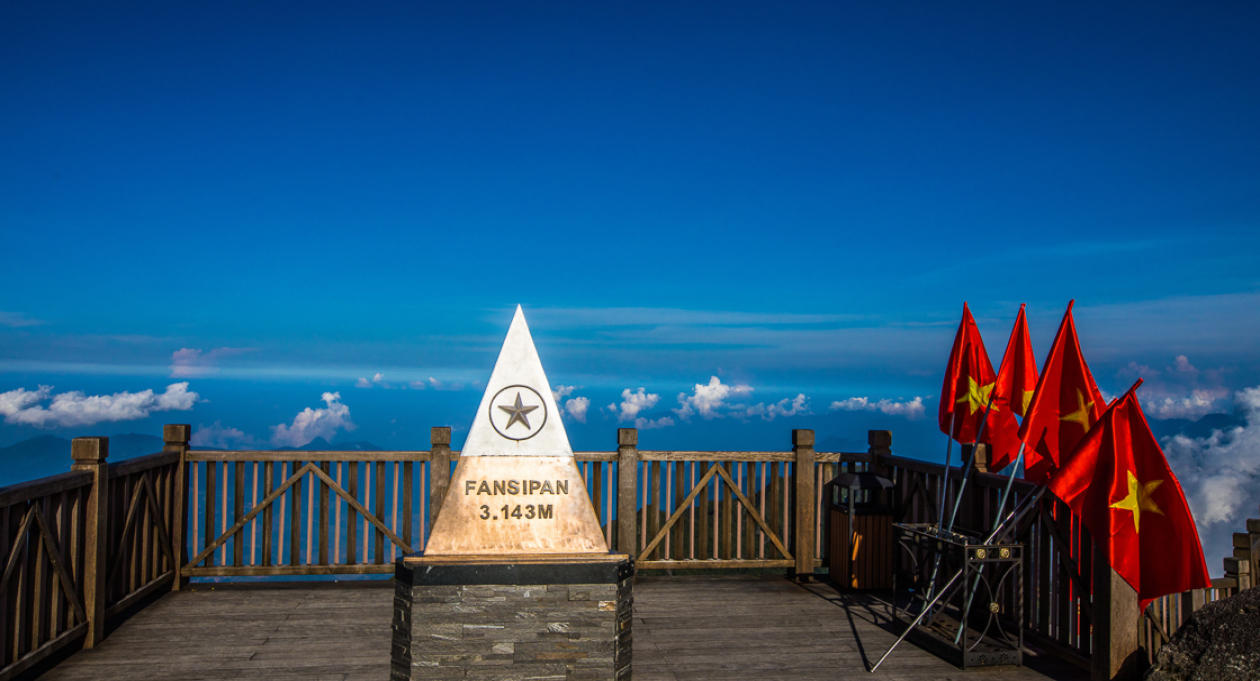
Standing at 3,147 meters, Fansipan is the highest mountain in Vietnam and all of Indochina. It has two ways to conquer it:
- Cable car: Take the Fansipan Legend cable car from Sapa town. It’s a 15-20 minute ride with sweeping views of clouds and mountains. The price is $30 round trip, worth it, right?
- Hike: A challenging 2-day guided hike will be the best experience for trekkers. Note: Even if you take the cable car, you’ll still walk a few hundred steps at the top, so wear good shoes!
Stay in a Homestay and Explore Local Villages
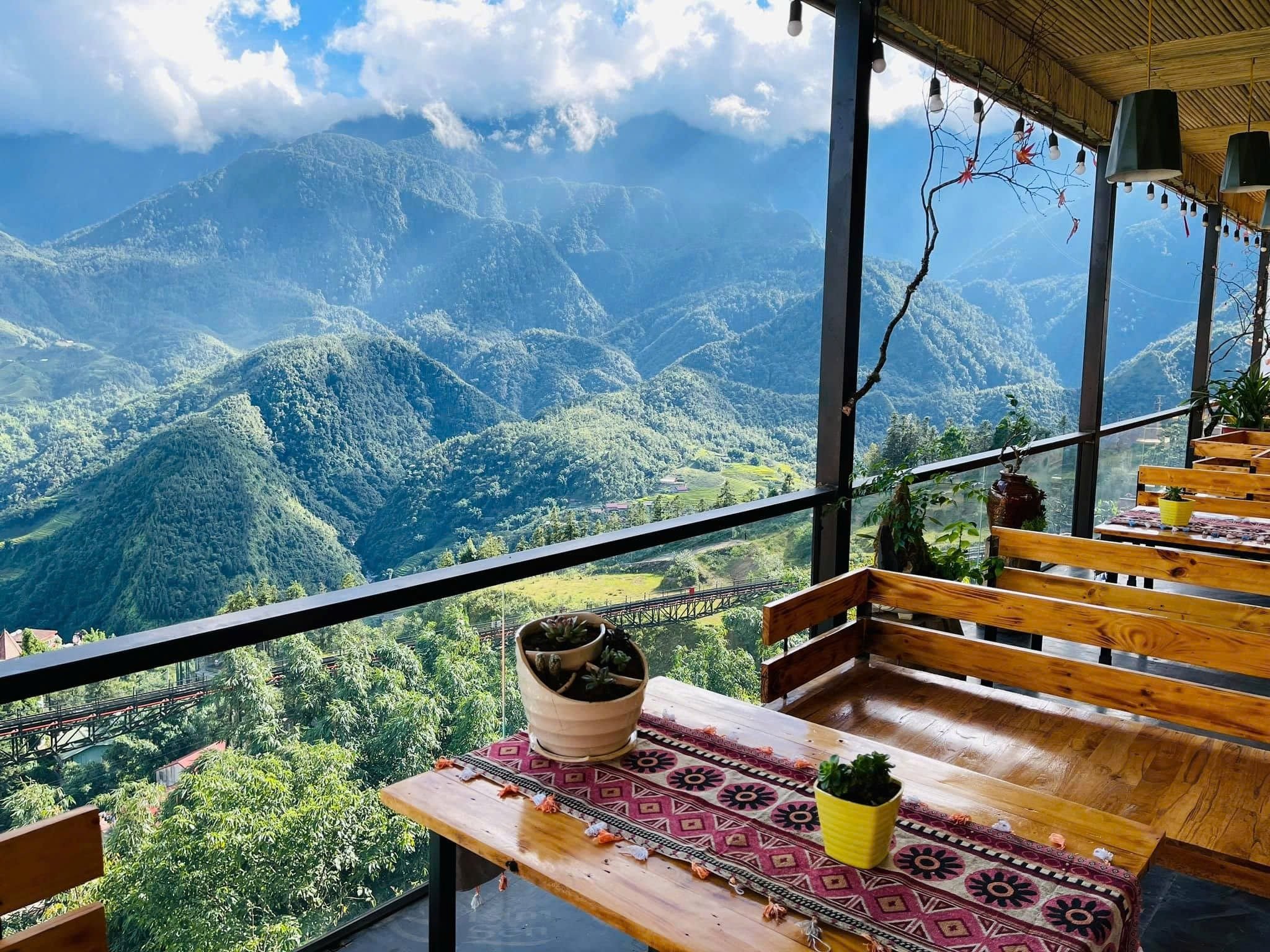
One of the best ways to truly connect with Sapa’s culture is by staying in a local village such as Ta Van, Y Linh Ho, or Ban Ho. These homestays offer more than just a place to sleep; they welcome you with authentic home-cooked meals, genuine hospitality, and peaceful views of rice terraces and flowing rivers. It’s a rare opportunity to slow down, unplug from the modern world, and experience daily life just like a local, even if only for a day.
Imagine learning how to cook bamboo sticky rice with your host, then joining their family around a wood-burning fire for a cozy dinner. You may not speak the same language, but with hand gestures, smiles, and a few cups of herbal rice wine, the connection feels effortless. It’s these small, unscripted moments that make a stay in Sapa’s villages truly unforgettable.
Visit Sapa Market and Stone Church
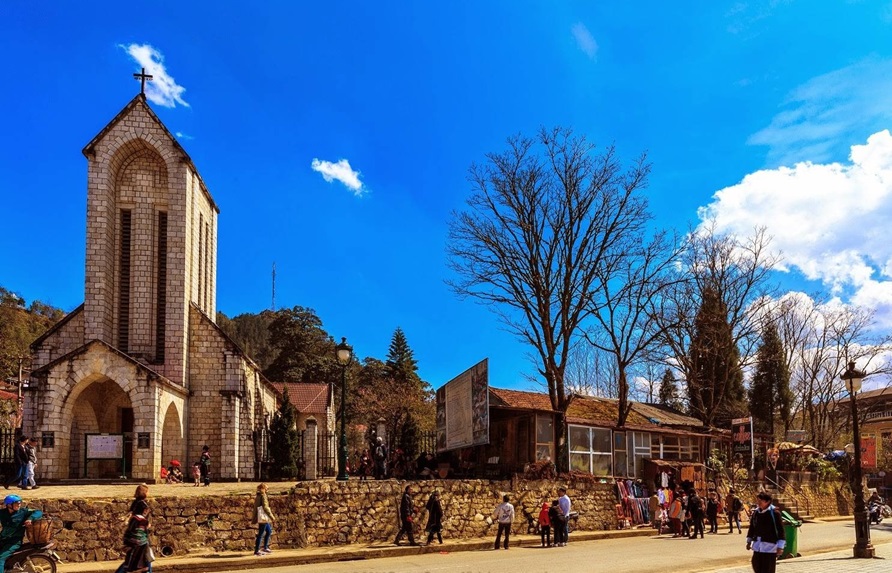
In the heart of Sapa town, you’ll find a vibrant local market that’s bursting with color, culture, and the scents of Northern cuisine. It’s the perfect place to wander, meet ethnic minority vendors, and pick up meaningful souvenirs from handmade textiles to fragrant mountain herbs like:
- Embroidered bags and scarves made by Hmong artisans
- Silver jewelry crafted by ethnic silversmiths
- Herbal bath kits prepared by the Red Dao people for traditional healing
Just a short stroll away stands the Sapa Stone Church, an iconic French colonial landmark built in the early 1900s. With its moss-covered walls and misty backdrop, it’s especially photogenic when the morning fog settles over town.
Try a Herbal Bath After a Long Day

After a full day of experiencing, treat yourself to a traditional Red Dao herbal bath. These are warm wooden tubs filled with forest herbs believed to soothe muscles and improve circulation. Many homestays and small spas in Ta Phin or Sapa town offer this service for ~$5–$10.
When Is the Best Time to Visit Sapa from Ninh Binh?
Sapa’s charm changes with the seasons, and choosing the right time to go can make a big difference in your experience, especially if you’re traveling from Ninh Binh, where the climate is warmer and more temperate. Here's a seasonal breakdown to help you plan the perfect trip:
- March to May – Spring in the Mountains: This is one of the best times to visit Sapa. The air is fresh, the skies are clear, and the rice terraces begin to take shape as farmers start planting.
- September to November – Golden Harvest Season: If you’re a photographer or nature lover, this is the ultimate time to go. The rice terraces turn a brilliant golden yellow, and the skies are often crystal clear.
- December to February – Winter Wonderland: Winter in Sapa is cold and mysterious. Temperatures can dip close to freezing, and snowfall is possible in higher areas like Fansipan. The fog adds a dreamy feel, but you’ll need to pack warm.
Note: It’s not recommended to travel to Sapa from June to August, as this is the peak of the rainy season. Heavy downpours often make trekking trails slippery and dangerous, while thick fog can block the stunning mountain views. In remote areas, landslides and flash floods are possible, sometimes cutting off access to villages.
Essential Travel Tips for the Journey
Before heading from Ninh Binh to Sapa, a bit of preparation can go a long way. From what to pack to where to stay, here are some tried-and-true tips to help you make the most of your mountain adventure.
- The weather in Sapa can change quickly, and the terrain can be tricky, especially if you're trekking. You shouldn’t leave without waterproof hiking boots, a light jacket, cash (many villages don’t have working ATMs or accept cards), and insect repellent.
- Many villagers belong to ethnic groups like the Hmong or Red Dao, and might not speak Vietnamese, let alone English. A few friendly words, or a translation app, can create beautiful, unexpected connections.
- Don’t miss out on these traditional dishes that reflect Sapa’s mountain culture like Thắng cố (a traditional stew often made with horse meat), salmon hotpot, and sticky rice with sesame and salt.
FAQs
Q: What is the cheapest way to get from Ninh Binh to Sapa?
A: The cheapest way is by sleeper bus, costing around $18–$20.
Q: Do I need to book transport in advance?
A: During weekends or peak months (March–May, Sept–Nov), yes! Especially for sleeper trains or buses.
Q: Is the journey from Ninh Binh to Sapa worth it?
A: Absolutely. While the trip takes time and planning, it offers a deep contrast that makes the effort worthwhile. You’ll move from the quiet calm of Ninh Binh’s flat rice paddies and ancient temples to the wild, misty peaks of Sapa.
Q: What’s the main difference between Ninh Binh and Sapa?
A: Ninh Binh is serene and spiritual, great for slow travel, boat rides, and cultural exploration. Sapa is vibrant and raw, ideal for nature lovers, trekking, and cultural immersion in ethnic minority villages. As I shared earlier, “If Ninh Binh is where you slow down, Sapa is where your soul soars.” The contrast between the two is exactly what makes this journey unforgettable.
The journey from Ninh Binh to Sapa may take some planning, but it’s worth it. You’ll experience two of Vietnam’s most stunning landscapes, each offering a unique rhythm, atmosphere, and connection to local life. If you’re looking to balance peaceful moments with bold adventure, this route delivers both beautifully.
>>> Ready to journey from Ninh Binh to Sapa? Let us help you plan the smoothest route and most scenic stops!
Join our curated tours for the ultimate North Vietnam experience:
>>> Contact us now to customize your Ninh Binh–Sapa journey!
- Hotline: +84963623907
- Email: info@asiamystictravel.com
- WhatsApp: +84963623907
Quick Contact
What do customers say about us?
Join us to experience a trip that will make you remember forever
